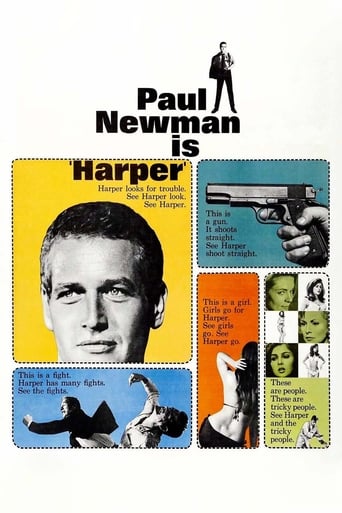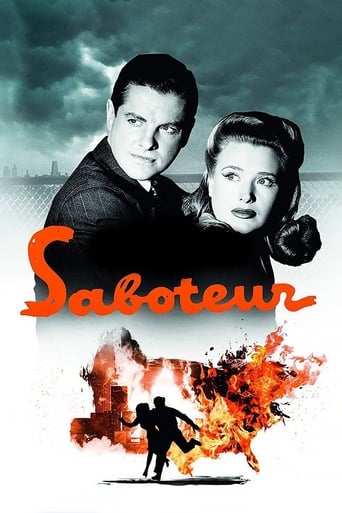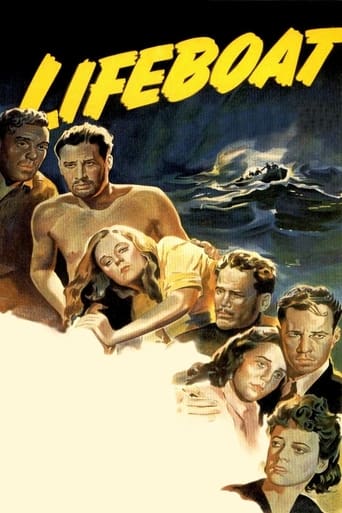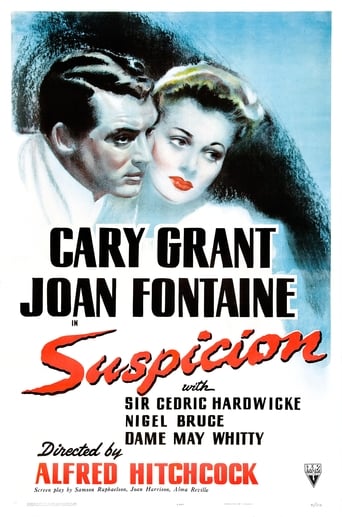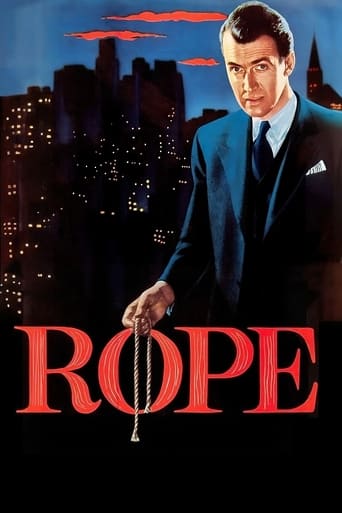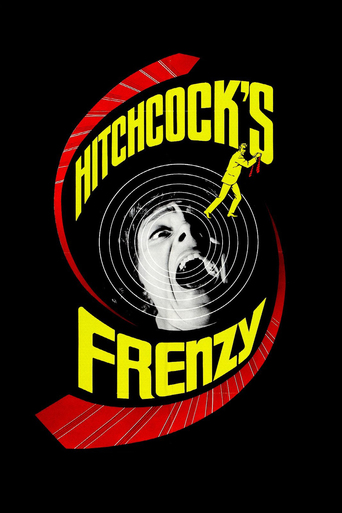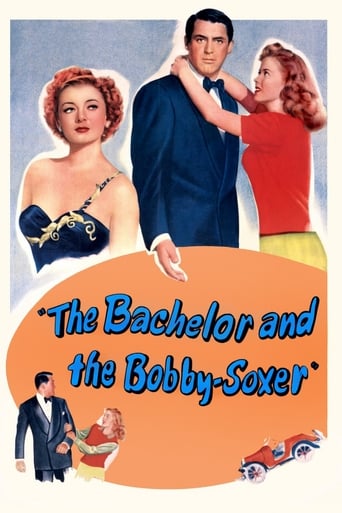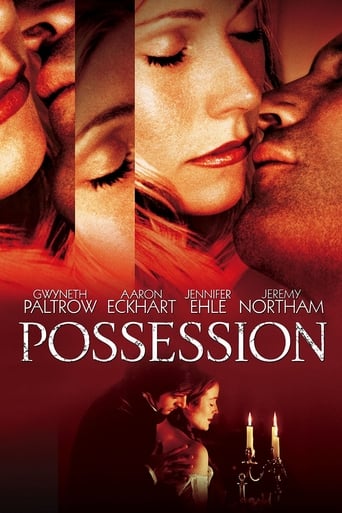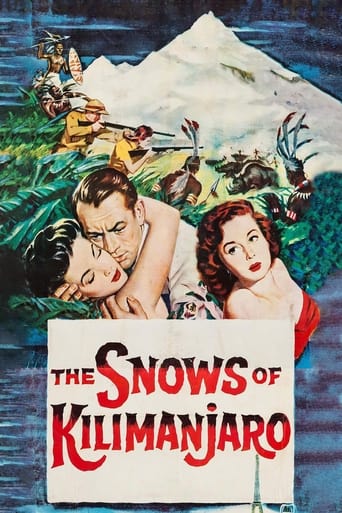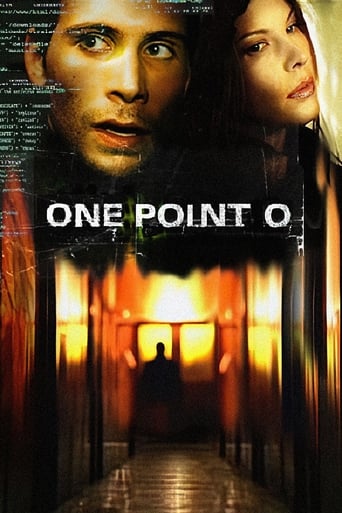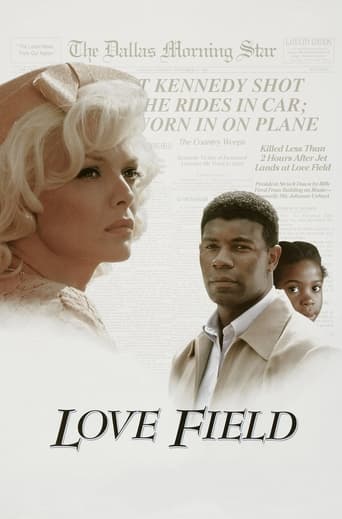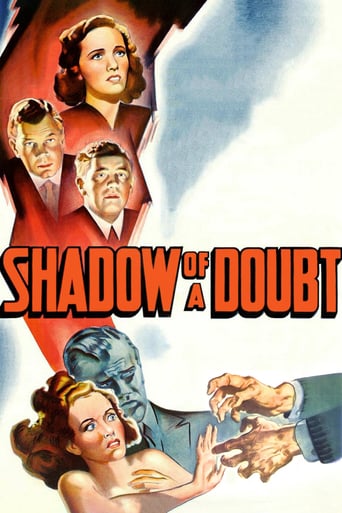


Shadow of a Doubt
Just when Charlotte ‘Charlie’ Newton, is feeling especially frustrated by the lack of excitement in her small town in California, she receives wonderful news: Her uncle and namesake, Charlie Oakley, is coming to visit. However, as secrets about him come to the fore, Charlotte’s admiration turns into suspicion.
-
- Cast:
- Teresa Wright , Joseph Cotten , Macdonald Carey , Henry Travers , Patricia Collinge , Hume Cronyn , Wallace Ford


Similar titles
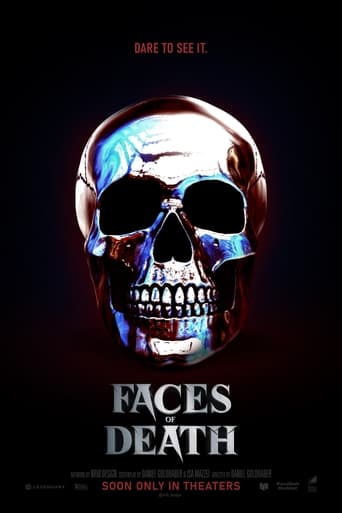
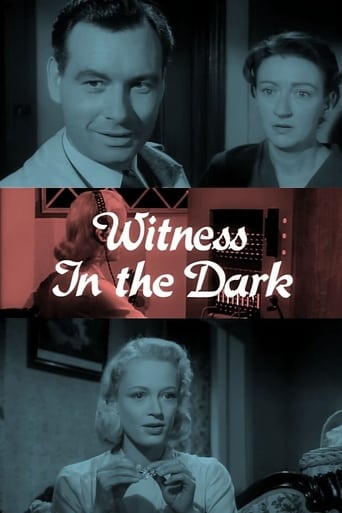
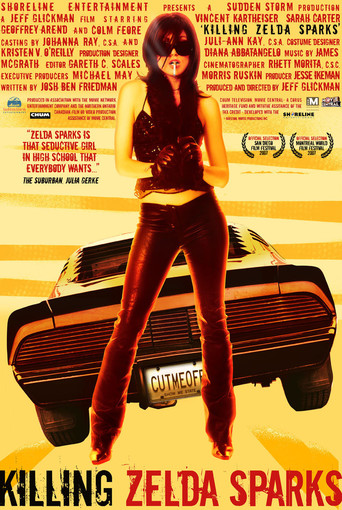
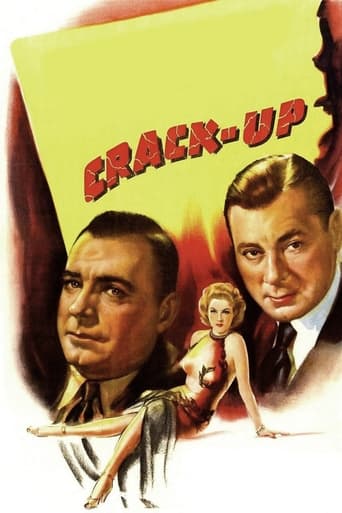
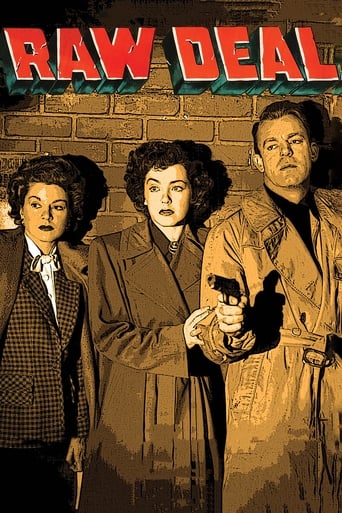
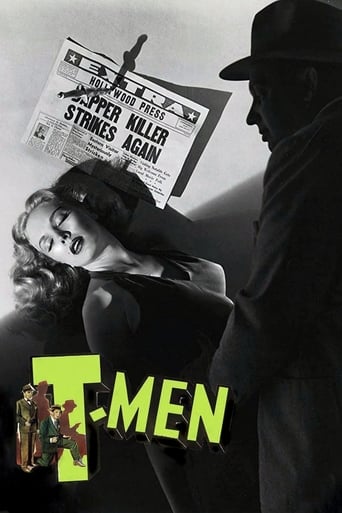
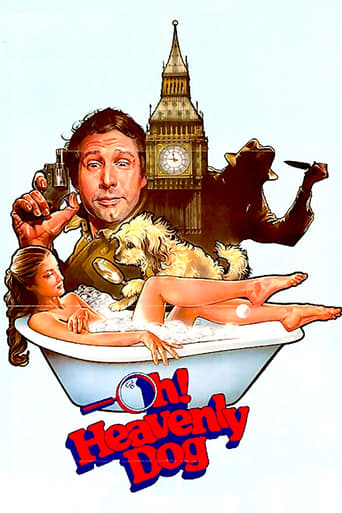
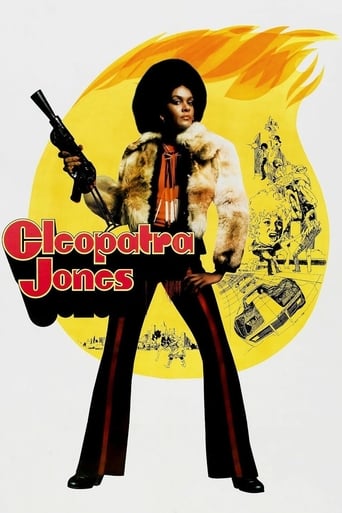
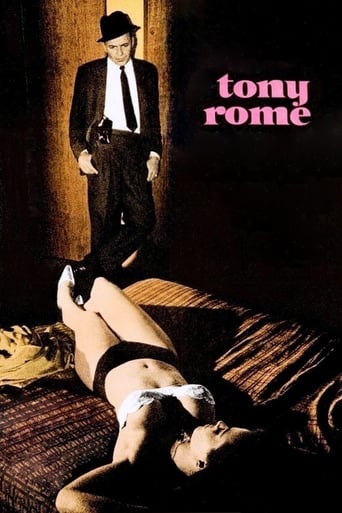
Reviews
Sadly Over-hyped
Fantastic!
This is a tender, generous movie that likes its characters and presents them as real people, full of flaws and strengths.
what a terribly boring film. I'm sorry but this is absolutely not deserving of best picture and will be forgotten quickly. Entertaining and engaging cinema? No. Nothing performances with flat faces and mistaking silence for subtlety.
Hitchcock said this was his favorite film, and there is a quiet evil about it that makes it truly horrifying. Uncle Charlie (Joseph Cotten) is on the run from the law on the East Coast, and he settles in with his sister and her family in Santa Rosa. Trouble is just behind him though, and it gets worse when his niece (also 'Charlie', named after him, and played by Teresa Wright) begins to suspect him of being the "Merry Widow Murderer".I considered a slightly higher rating, but thought the pace in the first half of the movie was a little slow. Some of the tension is also missing because we're pretty darn sure Uncle Charlie is guilty. On the other hand, there is a real small town feeling to this setting, helped in no doubt by Thornton Wilder being one of the screenwriters, and the characters of Charlie's father (Henry Travers) and his friend (Hume Cronyn) passing the time by talking about the perfect murder are absolutely priceless. The second half, including the increasing revelation of Uncle Charlie's dark views of humanity and the lengths to which he will go to protect himself, is what make the film so sinister. As the movie came out during WWII, it seems to have a direct parallel to the evil leaders loose in the world, particularly in the film's final scene.
"Shadow of a Doubt" was pivotal in Hitchcock's career as the first movie set in directors' Promised Land: America. And if I'm not sure that he held the film in higher regards than some later classics, I'm pretty sure though that the film was a sentimental favorite. And the word 'sentimental' is crucial as the underlying theme of "Shadow of a Doubt", is "when idealization meets deception" and we idealize a big deal in the name of sentimentality.So sentimentality was a prevalent element of Hitch' premiere in America, he wanted the most American-looking location, one you couldn't tell in which state it was. The privilege went to Santa Rosa, a postcard little town of old fashion charm, with an obligatory library, train station, bank, all in one copy. Townspeople know each other by first name, from the priest to the brave overweight traffic cop. The town also neighbored some famous Californian vineyards, which made the shooting all the more interesting for Hitch and all.If the sleepy little town could appeal to any outsider in quest of peace, some insiders would have a much different opinion. Charlotte, played by the sweet and talented Teresa Wright, nicknamed Charlie after her mother's brother but will be called Charlotte in this review for clarity's sake, doesn't feel exactly like a fish in water. When we first see her, she's lying on her bed, wondering how she can get off this unbearable heaviness of boredom. And she can't find any supports from her parents played by former co-stars, from "Mrs. Miniver", Henry Travers, a banker, and from "The Little Foxes", Patricia Collinge as the devoted housewife.All these faces fit together and the actors are so natural we really believe this is a family, but there are many hints suggesting that each member tries to escape from a suffocating routine The mother is mentally rooted in the past and mourns her brother, Charlie whose absence had a profound effect on her well-being. The father shares a strange hobby with his friend Herb (Hume Cronyn in his debut) imagining the perfect crime as if they were about to write a crime novel. The precocious little sister Ann, is a bookworm, as indicated by her glasses, and doesn't indulge to child's activities, and the youngest child Roger enjoys counting steps between places. Unrealistic? I used to do the same thing as a child.As usual, Hitch manages to create eccentric yet realistic characters, and Charlotte, the one person who had her feet on the ground decides to invite her Uncle. She learns that Uncle Charlie is coming to pay a visit after many years of absence. And it's not much the news that delights Charlotte, but the fact that she and her uncle had the same idea, she calls it telepathy, we call it idealization. We all feel a deep connection with the people we love and will find signs everywhere. And sneaky Hitch provides us the same signs, so we can also feel that bond. Narrative-wise, it's excellent because in a film where the bad guy is the main protagonist, Hitch knows we have to root for him a little, he manages to create the empathy by giving similar feelings to the good characters.So Hitchcock (who's all about signs) give us the ultimate sign of a deep bond between Charlie and Charlotte. When we first see Uncle Charlie, played by the great Joseph Cotton, he's also lying in a bed in some lousy place in New Jersey, just like his niece. But obviously, he has darker motives as suggested by the cops who try to arrest him. Uncle Charlie is a fugitive, a criminal whose record will be revealed progressively, but we're already ahead of Charlotte and her family. And the first visual sings of the titular shadow seem to be conveyed by the heavy cloud of gray smokes coming from the train, when Uncle Charlie arrives. Hitchcock, loved contrasts and the idea of sleazy evil coming to disturb the quiet peaceful town, something so impossible that no one would accept it, not even Charlotte, maybe not even us.It's a strange feeling because as soon as he comes, Uncle Charlie is like the touchstone of the family, such a natural charismatic character that we somewhat want the happiness to be maintained to this status quo. However, Uncle Charlie constantly throws hints to the face of Charlotte, and her resistance to face the truth takes its source from her admiration toward uncle. Before being a psychological battle, it's an internal one, and the whole first act is your typical Hitchcockian quest of a mysterious identity. The film gets actually more interesting once Charlotte knows, and has to digest the contrast between her idealization of her Uncle and what he really is, and it's such a startling contrast that she knows her mother mustn't know the secret, because it would kill her, it becomes a life-and-death situation.It also allows to cops not to arrest him in the house and so begins a psychological battle between the man-who-wants-to-stay and the girl-who-wants-him-to-leave and it naturally culminates with murder impulses from both sides. And while the story leads us to its thrilling resolution, we discover deeper and darker aspects of the protagonists' personalities, confronting two visions of life: cheerful and optimistic and twisted and misanthropist, and Teresa Wright is as convincing in the positive as in the negative emotions. And while the good triumphs over the evil, she's slightly contaminated by her Uncle's spirit, and might have her own shadow of a doubt regarding the goodness of human nature.While a masterpiece in its own terms, the film has a few little flaws but Hitch, and even us, viewers, keep on idealizing "Shadow of a Doubt", just like the family idealized Uncle Charlie, ignoring his darkest side. It's part of human nature. The question is, do we idealize the film better for its good or for its dark side?
This movie held my interest, but by the end I saw so many plot holes and implausibilities that it diminished my enjoyment of it. I won't include any spoilers, although some of this won't make complete sense unless you've seen the movie. Joseph Cotten's character, "Uncle Charlie," goes to spend time with his sister's family, apparently to get away from a couple of guys who are trying to hunt him down (why, is not immediately apparent). The drama begins when Charlie tries to get rid of a newspaper page containing a story about him. Problem is, only he knew it was about him. Nobody else would have connected it with him, and he must have known that. Two central characters then concoct an elaborate scheme, involving posing as reporters, to get a photograph of his face, when they could have just set up across the street with a telephoto lens (which I'm pretty sure they had circa 1940). For that matter, they could've simply walked up to him as soon as he came out the front door. There was no reason for the magazine scheme, except as a plot device, that leads to one of the main characters implausibly falling head over heels in love, with further complications ensuing. Eventually we learn that the plot involves some murders. At the end, everybody seems happy to leave things as they are, because the murderer is dead, but it would not have been that simple. There would have been issues to resolve about what was stolen from the victims. No honest police officer would just walk away and leave things as they stood, knowing about those outstanding issues. Well directed, with some nice camera work, and generally well acted. The kids are a little stiff, unsurprisingly, though Henry Travers is excellent in his supporting role as Joseph Newton. But the plot lets this movie down.
Shadow of a Doubt was, according to the Director himself, Hitchcock's favorite of his films, most likely because it opened a door for his later work. He had moved past the point of merely trying to thrill an audience, instead towards shocking them. Coming from an outsider's perspective, Hitchcock saw America for what it was at the time: a culture obsessed with war and violence that wanted to bury the past. America had been involved in World War II for several years at this point, those left behind were mainly older people who had little to do outside of work. He knew people wanted to see a good murder-mystery, and he finally poked at people's interest in the subject, by putting them in the story.Beginning in the average home life of the time, Hitchcock unsettles everything by introducing Uncle Charlie. The viewer is immediately introduced to Charlie's world, where we understand right away that he is a murderer evading the police. But to his family, Uncle Charlie is a charming, charismatic, handsome man, who is also obviously disturbed in some way. The way the characters choose to ignore this fact is telling. Uncle Uncle Charlie obviously has some sort of past abuse of some form or another in order to be a violent criminal, and his character lets his resentment known a number of times. The fact that no one had even attempted at this point to examine what made someone this way is revolutionary, and is not merely a coincidence. Uncle Charlie seems intent on burying the past the same way everyday people at time also attempted. Regardless, he is desperate to bring the family together, even though it can't be ignored that he is a criminal trying to hide himself in a normal setting. The fact that Hitchcock had chosen to bring a killer into a family setting is the source of the film's suspense. He was trying to get under the skin of everyday people at the time. All he had to do to in order to achieve this, was put Uncle Charlie at a dinner table with everyday people. The dinner scene carries the entire significance of the film. All focus is put on Uncle Charlie during the scene. We see, in close up, Uncle Charlie summarize his harsh feelings towards his targets, in a way that the audience is unable to ignore. It defines the entire work, and it is masterfully executed. Make sure to watch intently as it happens.The entire film hints at something unseen. Alfred Hitchcock knew that suspense came from a more mysterious place, and this is him executing that at a masterful level.

